The Ultimate Guide To Housesitting For Beginners: Get Free Accommodation Anywhere In The World

So many of us would give anything to be able to travel the world full-time.
But most of us simply don’t have inexhaustible savings or the means to earn an income while on the move, and without either of those, sustained travel is only a far-off pipe dream.
Most people that want to travel feel that they must put their nose to the grindstone for the majority of the year, so that they can afford to take a fleeting vacation to the destination they’ve been aching to visit.
The vacation is blissful while it lasts, but it’s almost over as soon as it began, and then it’s back to normalcy, back to the deadening routine of work and deadlines and commuting and drinking cups of coffee just to stay awake in the mornings.
But could there be a way to escape this pattern of forfeiting the vast majority of your time and indeed, your life, just for a few fleeting pleasures?
What if there was a system that would allow you to continuously travel to these dream destinations throughout the year, without bankrupting you or hurting your savings fund?
And what if that same system allowed you to actually save more money while travelling the world full-time than you’d be able to save while living at home?
Could there be a magic bullet that allows you to become a full-time traveller and to say goodbye to that life of toil and drudgery forever?
Believe it or not, such a magic bullet does exist.
It’s called housesitting and thousands of non-wealthy people have already sold off their homes and all their personal belongings to travel the world full-time as housesitters.
Table of contents

Housesitting is a kind of job that involves occupying a person’s property and taking care of their house, garden, vehicles and (usually) pets for a pre-defined period while the homeowner is absent, in exchange for free accommodation and (often) free utilities.
There is another version of housesitting, where the housesitter lives off premises and pays regular visits to the property that he/she is looking after, but this is a much less common arrangement.
There are also paid housesitting jobs, which we briefly discuss further below, but these are a somewhat different beast.
For most of this article we will be dealing with the type of housesitting that is based on a mutually beneficial exchange of services, where the sitter lives in the property for the duration of the assignment.
Housesitting started out as an exchange of services between sitters and pet owners living in the same local community, but has since evolved into a global network of international housesitters that housesit many reasons including:
- As a full-time, alternative way of life or escape from the daily grind.
- As a means of slowly travelling the world on a shoestring budget, without having to abandon the comforts of home.
- To dip their toes into a new lifestyle or to see if they enjoy living in a particular locality before buying a home there.
- To live rent-free while saving up for a down payment on a house.
- To avoid having to get a mortgage, or to pay one off quicker.
- To spend more time with animals or get a chance to interact with unusual or exotic animals.
Housesits can last anywhere from a few days to several years, although most assignments last less than 6 months.
Assignments often cover holiday periods, so you will find many 1 and 2 week housesits, but some people also take longer holidays.
Long-term housesits are often offered by retired couples who have the free time and money to take extended trips.

Housesitters are hired in many kinds of scenarios where a property is going to be temporarily vacated, such as when a homeowner:
decides to take a vacation (the most common scenario)
gets a job a new city and has to temporarily relocate
is deployed for military duty
has to make a business trip overseas
is an expat that wants to visit friends and family back home, or needs to do a “visa-run” (very common)
needs somebody to temporarily occupy their property in between tenants
Properties needing a housesitter run the gamut from rural farmsteads to luxurious penthouse suites in city centres and everything in between.
In most housesitting scenarios the property will be vacant after the homeowner leaves, but in some cases there will be other people still living there, such as an elderly relative, boarder or teenage child of the homeowner that isn’t responsible enough or isn’t willing to manage the property in the owner’s absence.
Your duties as a housesitter can vary hugely depending on the nature of the assignment. The basic idea is that you're just standing in for the homeowner and doing whatever tasks they would normally do on a day-to-day basis.
In general you’ll be doing things like:
- Feeding, bathing, grooming and exercising the pets
- Watering indoor and outdoor plants
- Mowing the lawn
- Pruning shrubs
- Raking leaves (especially during autumn)
- Washing windows
- Keeping the house clean and tidy
- Doing the laundry
- Maintaining the swimming pool
- Answering the phone and taking messages
- Collecting and possibly forwarding mail
- Contacting repairmen and other local service providers to fix problems as they arise
- Sending occasional reports or updates to the homeowner about how things are going
If you’re housesitting on a farm (known as farm-sitting) you might be expected to perform more involved tasks like milking cows, herding animals, assisting with births or changing bedding.
During some housesits your duties may be very light, especially in cases where owners have hired gardeners, maids, cleaners and other workers to maintain certain aspects of the property.
These workers will usually come and go according to a roster, while you will be the full-time occupant and the temporary master of the house.
Pets are involved in about 80% of housesits and indeed they are usually the primary reason that homeowners look for a housesitter in the first place.
The most commonly encountered pets are dogs and cats, followed by fish and birds.
You might also come across horses, chickens, pigs, sheep, goats, rabbits, hamsters, ferrets, gerbils, guinea pigs, livestock, reptiles and all sorts of other creatures.
Another major reason people hire a housesitter is to protect their house from burglars, squatters and vandals, so you will probably be expected to occupy the property after nightfall and you may be asked not to be gone for too many hours during the day.
However, if you’re really itching to escape to a hotel for a night or two, it’s often possible to ask a neighour or friend of the homeowner to step in for you for a short while.
If the house is in a remote location or is a little bit far away from essential amenities like shops, restaurants and ATMs, homeowners will often grant you the complimentary use of a bicycle, moped or car.
In some situations being able to drive a vehicle will be essential in order to run errands and procure groceries and other supplies, as well as in the event of any emergencies. Many countries do not have ambulance services for pet animals.
To drive in many foreign countries however you will be legally required to carry an IDP (international driving permit), which must be accompanied by your domestic driver’s license.
An IDP is never valid on its own, because it is actually just a translation of your domestic driver’s license into multiple languages.
In other countries your domestic driver’s license is sufficient on its own, without the IDP, while in a select few countries, such as China and Sri Lanka, you will have to obtain a special local driving permit from a police station or other issuing authority.
Some countries may even require you to obtain a domestic driving license for that country if your stay exceeds a specified length of time.
For example, the Philippines requires visitors to obtain a Filipino driving license from the LTO (land transportation office) if their stay exceeds 90 days.
As regards insurance, a homeowner giving you the use of their vehicle may be able to add you as a named driver to their existing vehicle insurance policy.
Unfortunately however, this is only allowed in certain countries and even when it is, the insurance company may not be willing to insure a foreigner.
Just remember that if you do decide to drive uninsured in a foreign country, you will have to bear the consequences if you have an accident.
Bear in mind also that you could be driving on a different side of the road than what you're used to, or in a left-hand drive vehicle when you've only driven a right-hand drive in the past.

Although housesitting is usually an unpaid job, homeowners will rarely demand any rental payments*, allowing you to live rent-free for several weeks or months at the property, and thus making it a mutually beneficial trade for both parties.
In addition to providing you with a rent-free abode, owners will also sometimes agree to cover the heating, gas, electricity, water, garbage collection, Internet, phone. T.V and other utility bills, although this varies case by case.
For shorter assignments it's common practice for the homeowner to cover all the utility bills, but during longer sits (3+ months) it's likely that you'll have to cover your own share of the utility bills.
You might also be expected to contribute to the utilities if there are no pets to look after or if you have very few responsibilities.
Also, if certain bills are very high, such as heating bills while housesitting in Canada in winter, you might be expected to contribute, even during a short-term housesit.
A homeowner should never really ask you to cover all the utility bills, since some of the heating and water usage is also for the benefit of the pets or to prevent pipes from freezing over in winter.
Besides, you're still saving the homeowner the cost of having to winterize their home or pay professionals to maintain their property and look after their pets, which would set them back much more than any utility costs.
If you're working hard to keep the place up and running and still being asked to pay all the utility bills yourself, you're probably being taken advantage of.
Unnecessary bills however, like those arising from your liberal use of the owner's pay-per-view satellite T.V, will almost certainly have to be paid by you.
Recurring bills for things like security services, ISP rental, phone rental, cable TV rental, sewer rental, property tax, homeowners association fees, body corporate fees etc. are usually the responsibility of the homeowner.
As regards expenses arising from pet, garden, vehicle and house maintenance, these will virtually always be fully covered by homeowners.
Such expenses could include pet food, vet bills, toilet roll, laundry tablets, dishwasher tablets, cleaning products, plant food, repairs, wages of maintenance staff and so on.
It’s possible that you will have to pay for some of these items out of your own pocket, hold onto the receipts and then ask the owner to reimburse you at a later stage. Homeowners may also leave you with some money to cover these expenses.
Groceries are normally paid for by you (there can be exceptions to this), although out of courtesy homeowners will often have the larder and fridge stocked with a few basic food supplies like bread, butter, eggs, milk, cheese, yoghurt, pasta etc. when you first arrive.
*Although it goes against the ethos of housesitting, homeowners do try to take advantage of some situations by charging housesitters a reduced rent. This is most likely to happen in scenarios like the following:
- In big metropolises like New York where property rental costs are sky-high, housesitters might be willing to pay a reduced rent for a housesit and homeowners might capitalize on this.
- If a particular housesitting assignment is in very high demand
- If there are no pets to look after and housesitters won’t have much housekeeping or gardening work to do
As we mentioned at the beginning of this article, paid housesitting jobs are a slightly different beast and could complicate things for you, especially if you're planning to housesit outside of your native country.
You'd technically be classed as working in the country, so you wouldn't be legally permitted to take on a paid housesitting job on an ordinary tourist visa, and would require a work permit or some other kind of visa that permits you to work in the country.
Then again, even non-paid housesitting could be construed as work (receiving payment in kind), and authorities in some countries might not draw much of a distinction between paid and non-paid housesitting arrangements.
If you want to charge for your housesitting services, it's ultimately up to you whether you want to risk doing it on a tourist visa or not.
There are actually three main ways that housesitters might receive financial compensation their services: by being paid gratuities, by being paid a salary and by offering additional services for a fee.
Receiving tips
Sometimes after completing an unpaid housesitting assignment a homeowner will pay you a tip if you’ve done an excellent job looking after the property and pets, or if you’ve gone above and beyond what was expected of you, but tips are not to be expected in every case.
Salaried housesitting jobs
It is very possible to find paid housesitting jobs, though they are in short supply compared to the ones where homeowners expect you to work in exchange for a free place to stay.
If a housesitting job is paid it often means that the property is in a very unattractive location, that the duration of the assignment is very short, or that you’ll have to do a lot more than just watch over the house and feed the pets while the owner is away.
You might for example have to care for very unruly pets, or an unusually large number of animals, or you may be tasked with demanding caretaking jobs like plumbing or repair work.
However, it’s not always the case that paid housesitting jobs are more demanding, and some homeowners are willing to pay a wage or stipend for just the standard housekeeping and pet-minding duties.
These homeowners probably believe that “you get what you pay for” and that by paying a professional they are more assured of a job done right.
One way to market yourself as a professional housesitter is to post your ad on any of the major international housesitting websites, but you’d be up against a majority of sitters offering their services for free, and you probably won’t have much success in the beginning.
However, if you housesit for free initially and build up a credible profile with tons of positive feedback, reviews and references, you may be able to start charging for your services on the major platforms.
In the meantime, you might have more luck finding paid caretaking jobs on a website that is dedicated to publishing these very kinds of positions.
Property caretaking is a bit different to housesitting but there is some overlap between the duties expected in both positions.
One of the best places to find paid caretaking jobs is The Caretaker Gazette, which is a newspaper that has been around since 1983. It publishes housesitting jobs both in print and online.
Many of the positions advertised in this newspaper just offer free accommodation or free bed & board in exchange for labour, but you can also find paid positions like the following:
“COUPLE, or a single person able to handle the desert throughout the year, is needed on a Southwestern Arizona RV Recreation Lease for housekeeping responsibilities (Housekeeping includes two main buildings, bathrooms, etc). Located 20 miles north of Yuma, right on the Colorado River. $11 per hour/40 hours per week, housing and golf cart provided. Must be able to work all weekends including Holidays. Please send a letter to Housekeeping, XXXXXXXXXXXXX”
If you want to apply for these paid caretaking positions that employers have advertised, a one-year subscription to the online publication will set you back $29.95, while you get a discount for two years ($49.95) and an even bigger discount for three years ($59.95).
The print version delivered straight to your door is slightly more expensive, and you can pay more again if you want to subscribe to both the online and print versions.
If you want to place your own housesitter-for-hire advertisement in the publication it will cost you $0.65 per word, so keep ads concise and to the point.
Another website where you can find paid caretaking positions all around the world is caretakerjobs.com, which is owned by the same people that run the housesitting website housecarers.com.
Full membership here costs $29 per year, but there’s also a limited non-paid membership where you can check what response you receive from employers before subscribing.
Once you upgrade to the paid membership you’ll be able to read the full messages and reply to them.
Offering additional paid services
Housesitters seeking paid work will often take on unpaid assignments but will offer homeowners additional services in order to earn some cash.
Examples of optional services that some housesitters offer include decluttering (selling items the homeowner wants to get rid of on e-commerce platforms like eBay), painting and decorating, designing a property rental website for the homeowner and garden clearance.
What extra services you’re able to offer would really depend on what your skills are and what the homeowner is interested in.
There are three primary parties involved in housesitting - the homeowner, the housesitter and the pets. All three parties benefit from the practice of housesitting but the benefits differ for each.
For sitters
A system for the non-wealthy to continuously travel the world (at a relaxed pace)

Full-time travel has traditionally been prohibitively expensive for almost everyone other than the rich elite, especially in the more developed parts of the world like Europe, the U.S. , Australia and New Zealand.
But ordinary folk with average incomes are beginning to realize that by housesitting their way around the world, they can avoid all the usual costs of travel, and can then travel for much longer, if not indefinitely.
We defined housesitting as a kind of job but for many people it’s also an alternative, nomadic lifestyle and a practical solution for escaping the daily grind.
It’s a bit like the lifestyle of a hermit crab, except that you don’t have to bear the physical burden of the home that you’re living in.
While it can be a bit of a rough transition to this lifestyle at first, the more experience you accrue and the more positive feedback you acquire from homeowners, the easier it becomes to land both new and repeat assignments, meaning you'll never have to be the hermit crab left without a home.
Save money and pay off debt
The money-saving benefits of housesitting are not to be underestimated.
If you use housesitting as an alternative way of travelling you could save well over $15,000 on short-term rental costs and hotel tarrifs in a single year by hopping from one gig to the next.
That means you can travel for longer (maybe even indefinitely) and have more money to spend on eating out, awesome tours and epic travel experiences.
If you housesit as an alternative to owning your own home, you can avoid expenses like utilities, property tax, homeowner’s insurance and vehicle ownership costs.
If you want to buy your own home, housesitting can help you to save money faster for a down payment on your own dream house.
If you already have a home but you’re trying to pay off the mortgage quickly, housesitting often makes it possible to have it paid off in full by a tenant renting your home.
Since your living expenses will be so low while housesitting, the rental payments from the tenant may be enough to pay off the mortgage in full each month.
Develop a deeper connection with a place
What’s nice about housesitting as a traveller is that you often wind up experiencing a part of a country, region or city that you would never have visited as a tourist.
Housesitting takes you beyond the superficial, glittering tourist attractions of a country (all that is gold does not glitter), and gives you a powerful insight into the everyday lives of its inhabitants, bringing you closer to its true essence.
Some of the homes you’ll look after are located off-grid or in peaceful countryside, while those in more built-up areas are usually located in laid-back residential areas, as opposed to the busy commercial centres where the hotels and hostels are usually situated.
As a traveller or digital nomad you can use your temporary new abode as a base to explore the local area, get some work done on the laptop, or just to enjoy living life like a local in a new and unfamiliar part of the world.
And if you can land an extended housesitting assignment lasting for several weeks or months, you’ll have sufficient time to learn the basics of the local language, get to know the customs and traditions, and begin to integrate with the local community.
It’s easy to end up meeting and befriending local dog owners when you’re out walking the dog every morning, and it’s not uncommon while housesitting to be invited for dinner with the neighbours after introducing yourself.
It is this experience of being welcomed and accepted as part of a local community that makes housesitting so powerful and rewarding.
Live like a millionaire even as a pauper

Some of the properties appearing in housesitting ads are so desirable and luxurious that they can be a major draw for people in themselves, especially for those seeking a touch of opulence in their lives.
It’s not uncommon to come across positions advertised for grand English manor houses, French chateaux, Scottish castles, chalets in the Swiss Alps, Spanish casitas, mansions, heritage homes and city penthouse apartments.
Some of these highly sought after properties are set in very desirable locations too, with breathtaking mountain or ocean vistas available from verandas and balconies.
Housesitting lets people experience living in these kinds of extravagant properties, which is something they would never be able to afford to do otherwise.
Some housesitters boast of how they paradoxically live like millionaires year-round in these kinds of opulent properties while spending less than £10,000 per year.
Evidently, there are a lot of wealthy homeowners in the housesitting world and they don’t like to leave their magnificent properties unguarded for too long.
But of course, you can bet that the competition for these highly desirable housesitting assignments will be particularly steep.
It’s more likely that you’ll have to accept the more mundane housesitting assignments when first starting out, especially before you’ve built yourself a strong reputation.
It’s amazing to think though, that housesitting offers anyone the possibility of living like a king for months on end in the property of their dreams while incurring very few living expenses.
Interact with animals
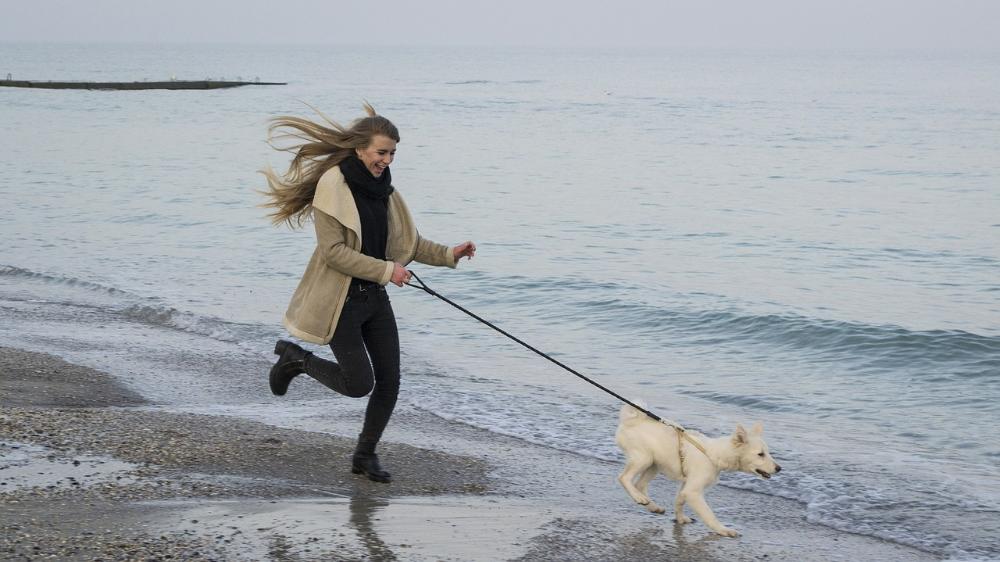
The fact that most housesitting assignments are heavily focused on pets is another perk of the job for many people.
Housesitting lets you have a much-needed “pet fix”, especially if you’ve been travelling for a while and are badly missing your own pets back home.
You will have amazing experiences with animals through housesitting that you would never have had otherwise, and some homeowners can keep very unusual pets, which always keeps things interesting.
Plus, if the pet you're minding is a dog, having to exercise it every day will get you out and about and will force you to get into better shape yourself. Often it’s the dog that takes its master for a walk and not the other way around!
The bottom line is that if you love spending time with animals, you will find housesitting to be an intrinsically rewarding activity.
All the comforts and amenities of home while travelling
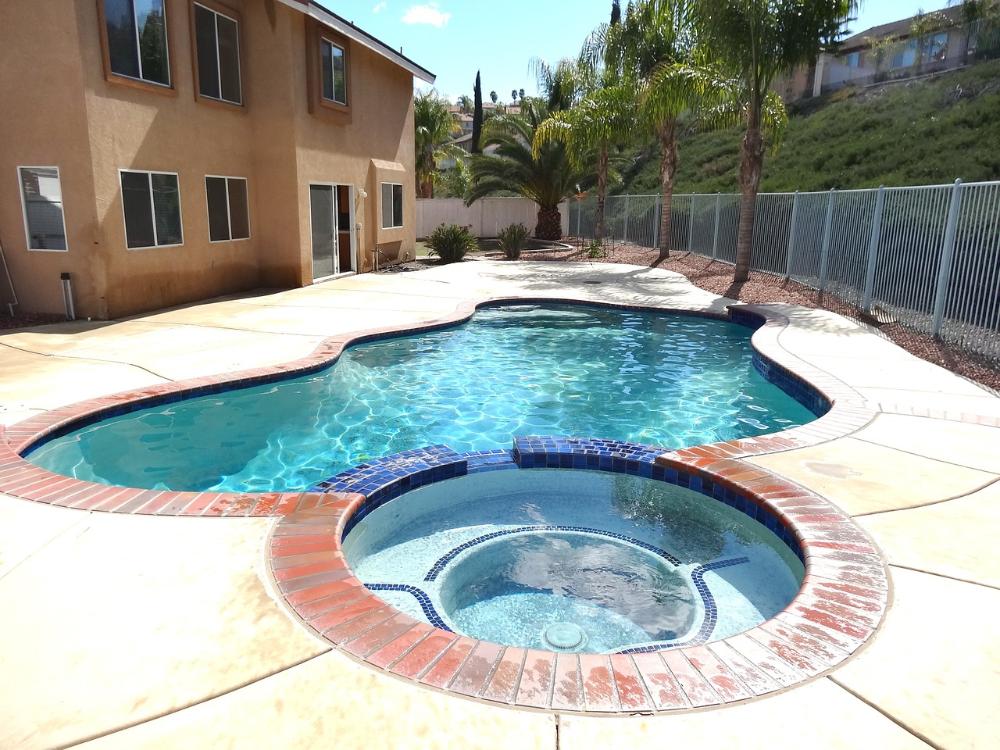
Let’s face it. If you want to experience all the comforts and amenities of home while travelling you will probably have to spend a fortune on accommodation.
Wi-Fi in cheaper accommodation options can often be very slow or non-existent. Budget rooms can be cramped and often lack even the basic amenities like a fridge, kettle, hot shower, western toilet and even power outlets!
For some travellers the lack of comforts and amenities is not a problem, but for others (especially older, retired folk) it can be an issue, and a fast and stable Internet connection is essential for digital nomads.
What better way than housesitting to travel with all the comforts and amenities of home without the crippling expense of fancy hotels?
Even if you rent out spacious homes or entire apartments when you travel, the homeowner will have removed most of their personal items from the property before you move in, leaving you with fewer amenities, comforts and entertainment options.
But when you move into a housesit, the homeowner will most likely leave the house exactly as it was before you arrived, and will let you “help yourself” to all the amenities on offer.
You'll have a kitchen that'll most likely be better equipped than anything you'd find in a rental property.
You'll be able to prepare your own healthy meals using fresh produce bought from local markets, and save money on eating out.
You’ll be able to avail of all the lavish home entertainment options - CDs, DVDs, Blu-rays, video games, books, board games, table tennis tables, pool tables, foosball tables, dart boards and so on.
You might have the use of amenities like a hot tub, outdoor barbecue, wine cellar, yoga studio, swimming pool, tennis court, basketball court, mini-golf course, mini-bar, home theatre, home gym/exercise machines, sauna, steam room, vibrating massage chair, desktop computer, printer, scanner, and many others.
If you’re a musically-inclined housesitter you might be permitted to play to your heart’s content on the homeowner’s grand piano, guitar, harp, cello or drum kit.
Of course, some homeowners might lock certain rooms in the house or even forbid access to entire wings of the property, and they will probably keep any valuables, breakables, family heirlooms, trophies and other prized possessions out of sight, but in general you’ll have the use of all the best things the property has to offer.
For homeowners
From the homeowner’s perspective housesitting is also a win-win.
It's better for the pets

When it comes to pets, the benefits of hiring a housesitter are obvious.
Having a housesitter means that your pets can escape a stint in a pet hotel, boarding kennel or cattery, where they might pick up infections, get into fights, be intimidated by larger animals, have an unwanted pregnancy or be treated poorly by staff that are just there for the paycheck and lack any real concern for the animals.
With a housesitter to man your crib, the animals can instead remain at home where they feel safe and contented, and they don’t have to face the stress of having their routines disrupted.
Although your pets will have to adapt to their new carer, research has shown that animals (especially cats) find it much less stressful to adjust to a new person in a familiar environment than adapt to a whole new scenario.
And homeowners need not worry about housesitters being incompetent at handling their pets, as most applicants have experience dealing with animals or have training in animal care, pet first aid, basic veterinary care and animal psychology.
If any serious health complications arise, they are always there to take your pet to the emergency veterinary clinic or animal shelter for life-saving treatment.
Less hassle and guilt for you

By hiring a housesitter you don’t have to go through the hassle of forcing your pets into a crate or cage, transporting them to the boarding facility and then dealing with those horrible pangs of guilt when you abandon your forlorn-looking pets to their new “carers”.
Moreover, there’s less of a chance that your dog will still be angry with you for abandoning it when you return.
In 2018 a story appeared about a dog that travelled more than 100 km to bite its owner, after having been abandoned at a gas station while the owner was on his way to take a beach holiday in Albuquerqe, New Mexico.
Save a ton of money
A housesitter is a person who, without charging you a dime, is willing take care of your pets, maintain your property and act as a human deterrent for burglars, squatters and vandals round the clock.
Where else would you get that kind of 3-in-1 service without having to pay someone a large salary?
By hiring a housesitter you save money by not having to hire professional cleaners, housekeepers, caretakers, security guards, pet sitters and gardeners.
Keeping pets in boarding facilities can also be very expensive.
In countries like the U.S. and Canada boarding kennels for dogs usually cost around $25 – 45 a night depending on location, and catteries are usually only slightly cheaper.
More upscale boarding options like pet hotels usually start from $50 a night and the price only goes up from there.
A housesitter can also save you the money you'd have to spend on virtual mailboxes or other mail forwarding services to access your mail remotely.
No need to burden neighbours, friends or family with your pets
Some homeowners try to save money by leaving their pets with friends, relatives or neighbours, but it’s unfair to burden other people with your furred creatures if you’re going to be away for any longer than a few nights.
You could end up fostering resentment if you keep asking others to look after your pets while you go off and have the time of your life on vacation.
And if your pet is going to live in another person’s home it will be a complete change of environment and routine for the animal, which could be very stressful for it indeed.
It's often a better option than getting a tenant (especially for short absences)
Homeowners that don’t own any pets might not see as many benefits of hiring a housesitter as those that do, but even when no pets are involved, hiring a housesitter can be a better option than the alternatives.
Finding a tenant to rent out your home to while you’re away can be difficult unless you’re leaving for an extended period, as there aren’t very many tenants that will accept a rental agreement for a term shorter than 6 months.
You’ll also have to remove a lot of the existing furniture and other stuff from your home when a new tenant moves in, which could result in storage fees if you have nowhere to keep everything for free.
There are also the added hassles of collecting rental payments from tenants and possibly having to pay taxes on rental income.
Another important thing to consider is how a tenant is going to treat your property versus a housesitter.
Because a tenant is paying you for the use of your home, they might feel like they don’t owe you anything, and that they have the right to treat your property however they like.
For a housesitter on the other hand, it’s actually their job to look after your property and to return it to you in even better shape than it was in originally. This is how they are repaying you for your generosity in letting them live in your home for free.
It's much safer than locking the place up
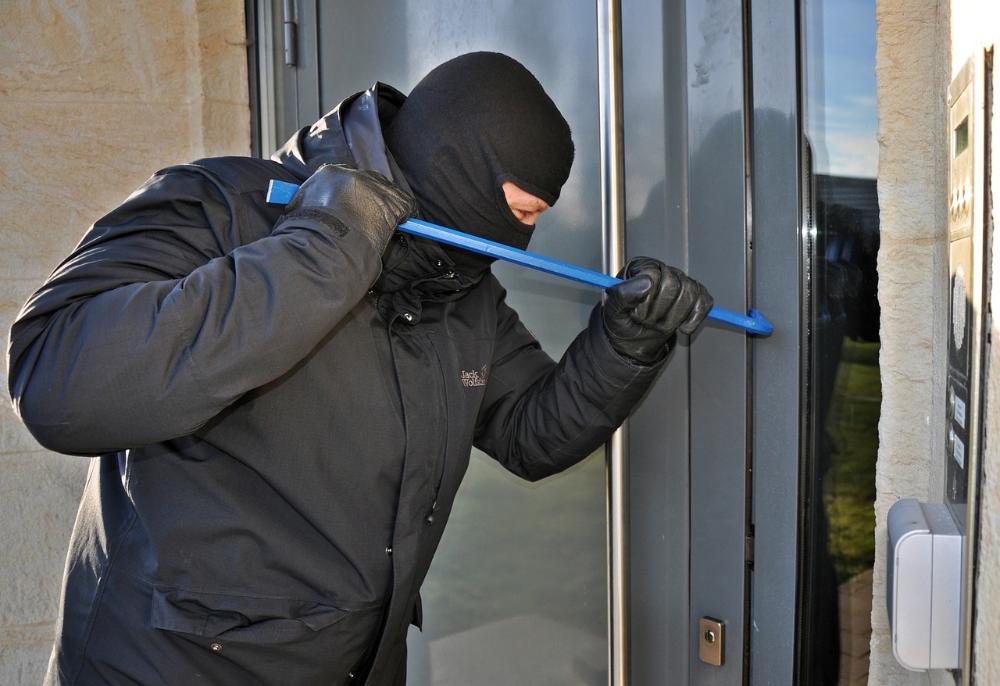
Instead of finding a tenant, some homeowners without pets think that there’s no harm in just locking their property up for a few weeks or months until they return.
But when you do that you are taking a risk, as properties are almost always a lot safer when occupied.
Neighbours can’t be expected to keep an eye on your property 24/7 and vacant homes are a magnet for burglars, squatters, drug dealers, delinquents and graffiti artists.
Plus, there are other problems that can arise when a property is left unoccupied.
Frozen pipes and water tanks can burst in winter and cause water damage.
Mold can develop from the lack of ventilation and stuffy air in the house; there’s nobody living there to open the windows and replace the stale air regularly.
Vacant properties are also prone to arson, and even accidental fires can be disastrous, as there is nobody living at the place to notice and extinguish a fire before it gets out of hand.
To make matters worse, your standard home insurance policy will usually only offer extremely limited cover if you leave your property unoccupied for more than 30 days, although some insurers offer full cover for up to 60 days of vacancy.
For all the above reasons, hiring a housesitter is always a great option for homeowners that are going away, whether pets are involved or not.
As long as you choose a trustworthy and responsible housesitter you should have very few problems to deal with.
Stay in the loop
You can get some idea of what's going on back home by following the national news online or by talking to friends and family. But to know everything that's going on in your particular domain, you need to be in touch with a contact that's living there.
A housesitter is there to forward your mail, take messages from phone callers, answer the door and take messages from visitors, and keep you updated about all the important changes that are taking place in your neighbourhood as they happen.
Like anything in life, housesitting is not perfect and does come with its fair share of drawbacks for homeowners and housesitters alike.
Luckily though, the vast majority of people that try housesitting find that the negatives are far outweighed by the positives and that's why they keep on doing it.
For sitters
If you don't like, or can't be around animals
If you don’t enjoy interacting with animals and taking care of them, or if you are allergic to certain animals, then housesitting is probably not for you, unless of course you can manage keep landing those scarce pet-free housesitting assignments.
If you do like animals

How can liking animals be a problem when it comes to housesitting? Well, the problem arises when you grow to like them a little too much.
Housesits can last for weeks or months and that’s enough time to become strongly attached to the pets that you’re looking after.
When the homeowner returns it can be heartbreaking to bid farewell to the animals that you’ve gotten to know so well and have become surprisingly attached to.
And you will surely have developed strong attachments to many other aspects of the new life you’ve been leading.
The house, the garden, the neighbours and other local people you’ve befriended, the local sights, sounds and smells, the daily excursions, the morning walks with the dog, the general lifestyle.
Everything you’ve become accustomed to vanishes in an instant when a housesit comes to an end, and that is one of the downsides inherent in the job.
It's a commitment
Another downside of housesitting is that you’re sort of locked into an assignment once you’ve accepted the job and booked your plane tickets.
This is less of a problem for shorter assignments lasting for just a few days or weeks, because you can probably grin and bear a disagreeable situation for a short length of time.
But what if you’ve committed to a 6-month housesit and you’re starting to hate it midway through, or even worse, from the moment that you arrived?
You could always say that a family member has fallen ill back home or fabricate some other plausible excuse for having to leave, and give the homeowner sufficient time before you leave to make alternative arrangements for their pets and property.
But there’s always the possibility that the homeowner won’t believe your excuse and might leave negative feedback your profile, thus sabotaging your odds of securing future assignments.
It's a job

Housesitting is, at the end of the day, a job, which is exemplified by the fact that some people only do it if they receive a salary.
Yes you will have some free time and plenty of opportunity to enjoy life in a new part of the world, but as a housesitter you also have duties and responsibilities, and somebody is expecting you to provide a service each and every day.
At times you may feel that you are a slave to the pets' needs and all the tasks that you have to complete on a daily basis.
It’s definitely a lot better than working in a cubicle, but perhaps responsibility is the very thing you’re trying to get away from by hitting the road.
If you just want to travel, relax, see the world and be completely carefree, then housesitting might not be right for you.
It's unpaid
Yes, you usually won’t have to spend anything on rent or utilities, but you’ll still have expenses like groceries, gas, eating out and replacing things that you break by accident.
You’re giving up a lot of your time to look after somebody’s property and pets but you still have living expenses, which means that you still need to find a way to earn some money, and that means more work on top of the housesitting duties you’re already doing.
Homeowners can cancel after you've booked your flight
It’s a nightmare situation but it does happen from time to time.
You accept a housesitting assignment, buy a plane ticket and make your own way to the property only to be told by the homeowner that their planned trip has been cancelled or postponed for another few days or weeks.
Sometimes owners will notify you about a change of plans before you board your flight, which at least saves you some of the hassle, but could still prove costly if the ticket is non-refundable and you weren’t going to fly to the country anyway.
There’s nothing you can really do about this, as unforeseen events do arise that force people to cancel trips.
You can at least book your flight as close as possible to the scheduled start date of the housesit and only housesit in countries that you were planning to visit anyway, regardless of whether you found a job or not.
It's not for people who like to party and socialize

Housesitting is generally not well suited to those who like to party and be at the centre of the action when they travel.
You are not usually going to be staying in areas that cater to entertainment-seeking tourists with nightlife, bars, clubs and a party atmosphere.
A person’s private abode is obviously nothing like a hostel where you can meet backpackers from all over the world and there are new people for you to meet every single day.
Housesits are usually located in quiet, boring residential areas, far from the beating heart of towns and cities, unlike most hostels, guesthouses and hotels, which tend to be located closer to the action.
Some housesits are situated in the middle of nowhere or completely off-grid. If you’re a socialite, how will you cope with the silence, the maddening tick-tock sound of the clock on the wall, and the endless hours of solitude? Do you enjoy your own company?
Besides, even if you befriend the neighbours or some other local people, the homeowner might fire you if you start throwing wild parties at the house.
You should be able to enjoy some semblance of a social life during most housesits, but if you’re a party animal, this vocation is probably for you.
Things will go wrong and when they do, you'll be responsible
99% of your housesitting assignments will go off without any major hitches, but there will be those rare occasions when things will go majorly pear-shaped, and you need to be prepared for that.
Now of course, when you’re staying in a hotel or a rental property, problems can also arise, but in those cases you’re not usually the one responsible for fixing them.
When you run into a problem while housesitting, homeowners or neighbours might not always be as responsive or as capable of assisting as you need them to be.
You're often on your own and it’s all up to you to find the solution to a problem, and that can make the job very stressful at times.
Many travellers have had housesits go terribly wrong, facing problems like the following:
- A house that reeks of smoke, urine or mold
- An extremely dirty house that's filled with garbage, animal droppings and years of accumulated clutter because the homeowner is mentally unsound
- Extensive construction or renovation work going on during the assignment, making the property unlivable
- Being burdened with an unfair workload, like having to water hundreds of plants daily, manage extensive gardens or care for an entire zoo of animals. Some homeowners also try to get housesitters to run their Airbnb, B&B, hotel or other rental business.
- Neighbours from hell
- Frequent power and water outages
- Very slow or unusable Wi-Fi
- Extremely hot weather and no fans or air-conditioning system at the property
- Extremely cold weather and no means of heating the house
- Insect infestations (flea and tick infestations are very common)
- Problems with pests like rats, mice, bees and spiders
- Leaking pipes that flood the property
- Missing/broken equipment, tools and provisions that are essential for fulfilling household chores, gardening work and pet care
- Broken or non-existent basic household appliances like kettles, fridges, freezers, washing machines, dishwashers, toasters, microwaves, ovens and so on.
- Children or other relatives of the homeowner that unexpectedly turn up at the home and start living there during the housesit
- Beds with soiled linens, pillows, mattresses and duvets
- Having to manage unruly pets or pets that constantly fight
- Pets that are not toilet trained and keep peeing and defecating all over the house
- Learning on arrival that there are far more pets to look after or duties to perform than the homeowner originally disclosed
- The homeowner leaves the utility bills unpaid, forcing the housesitter to pay them to avoid losing service
- The homeowner expects the housesitter to pay the wages of the gardener, housekeeper or other staff when this was not previously agreed upon
- Having to deal with homeowners who violate the agreement and try to bill them for everything, or who claim the housesitter abused the utilities when they didn’t
- Becoming ill during the housesit and having to find somebody to stand in temporarily to take care of the pets and house
- Homeowners that try to take advantage of a property’s remote location by charging money to rent their vehicle, knowing that the housesitter would otherwise be stranded
- Pets that go missing, get seriously ill, injured or die during the housesit
- The house gets burglarized and several of the housesitter's own uninsured personal belongings are stolen, as well as some valuables belonging to the homeowner
- A fire breaks out within the house or a raging bushfire approaches the house
- The house is damaged or destroyed by a natural disaster like an earthquake, flood or hurricane
- An uncommunicative homeowner that won’t reply to any e-mails or takes weeks to do so, leaving housesitters completely to their own devices when help is most needed
Thoroughly vetting homeowners can definitely help to minimize the problems that you'll face, but unfortunately you'll have to do this yourself, as most housesitting websites are much more geared towards vetting housesitters than homeowners.
Even when you do carefully evaluate an assignment, there is still always the possibility of unforeseeable mishaps, no matter how sure you are that everything will go smoothly.
For homeowners
Housesitters can cancel at the last moment, arrive late or abandon the housesit at any time
One of the biggest fears of homeowners is that housesitters they’ve hired for an assignment will cancel at the last moment, leaving them hardly any time to scramble to find a new sitter or make alternative arrangements.
It can also cause issues when a housesitter announces that they're going to arrive later than originally expected. If they're only delayed by a few hours it's probably no biggie, but if they're going to be several days late, new arrangements will probably need to be made.
The other situation that can cause a lot of headache is when the housesitter abandons the sit part way through.
Sometimes there's a valid reason for a housesitter to do this, like when one of their close relatives suddenly falls ill or passes away.
In other cases however, it happens when the sitter becomes bored after a few weeks of the same routine, or when an assignment doesn't match their expectations.
A housesitter can also sometimes be forced to abandon an assignment, when the homeowner's return is delayed by a few days and the housesitter's visa is going to expire before they return.
Joining one of the more expensive platforms like trustedhousesitters.com, where housesitters have to pay a relatively high annual membership fee, might help to reduce the chances of cancellations, delays and abandonments.
In general, the less money people pay towards their housesitting membership, the easier it is for them to cancel assignments on a whim and to not take the commitment seriously.
Housesitters can break rules or do things in your home that you won't like
Housesitters have admitted to or been caught on surveillance cameras (that the owner forgot or decided not to tell them about) doing all of the following:
- sleeping in the homeowner’s bed
- using the owner’s toothbrushes, towels, sponges, soap bars, sex toys and other personal items
- trying on the owner’s clothes, underwear and lingerie
- snooping through the owner’s private cabinets and drawers
- entering parts of the property, such as the owner's bedroom, that were supposed to be out of bounds
- urinating in the kitchen sink
- abusing or mistreating the pets
- feeding the pets junk food or a diet that the homeowner didn't prescribe
- masturbating while lying naked on the living room sofa
- drinking the owner’s expensive Scotch whisky and other alcoholic beverages
- opening the owner’s postal mail without permission
- driving the owner’s vehicle without consent.
- Inviting over friends/partners or letting somebody else live at the house against the homeowner’s will
Installing surveillance cameras throughout your home and disclosing their whereabouts to housesitters could definitely help to deter these kinds of behaviours.
But monitoring housesitters is generally frowned upon in housesitting communities, because it goes against the spirit of trust that they are founded upon.
Housesitters can break, steal or damage your personal possessions

There’s always a small risk that a housesitter will break, steal or damage your personal possessions during an assignment.
Sometimes breakages or damage will occur because of a genuinely unavoidable accident, but in other cases these things happen because it’s easy for people to be remiss with things that don’t belong to them.
It's even worse when housesitters break something and don't bother to replace it, or try to hide the evidence, pretending that nothing ever happened.
A minority of housesitters are professional or opportunistic thieves that use housesitting as a way to steal the valuables inside people’s homes without having to break an entry.
In 2016 a Denver housesitter was charged with petty theft after stealing some expensive personal items like purses and jewellery from a home where she was housesitting.
Even fully vetted housesitters or ones that only work for a salary can steal, so there’s no real way of knowing if you can trust somebody.
And remember that almost anyone can seem like they’d never steal, but when something of immense value is suddenly up for grabs, even the most virtuous people can suddenly become intoxicated with greed.
While your existing home insurance policy will usually cover accidental breakages and damage, it will probably exclude malicious damage or theft that is caused by somebody that is lawfully on the property, such as a guest or housesitter.
Most housesitting platforms do not insure homeowners against theft or intentional damage caused by housesitters either.
One exception however is if you hire a sitter through Trusted Housesitters, in which case you are covered up to $1,000,000 for theft, malicious damage, accidental damage and third party liability (in case someone has an accident on your property and tries to sue you).
Housesitters don't always fulfill their obligations
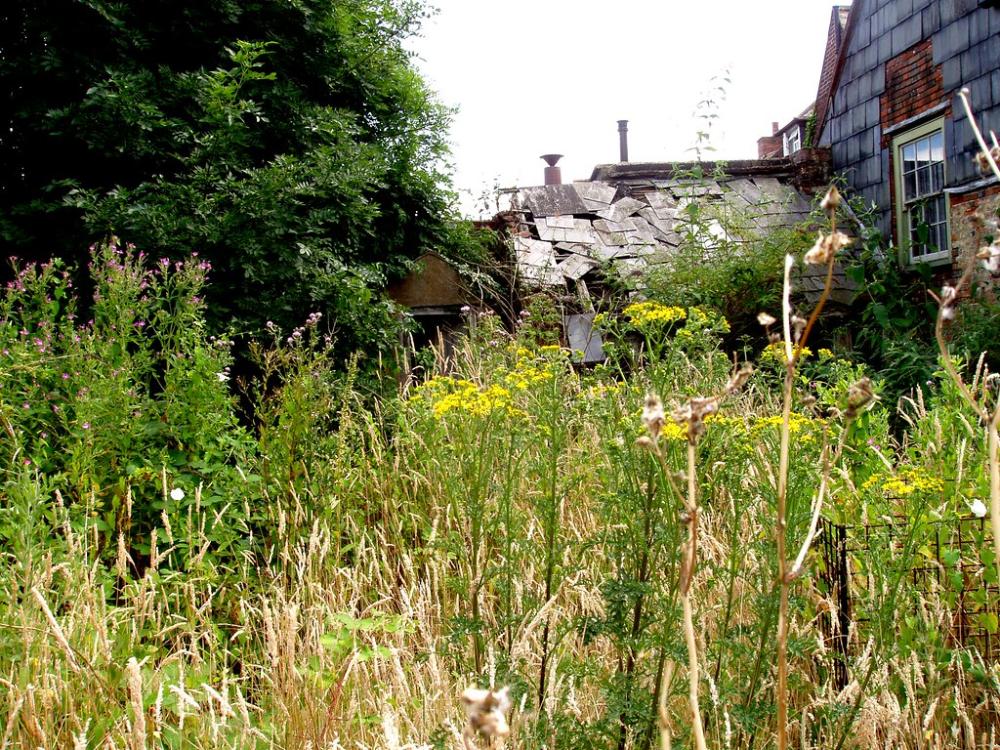
It’s not exceedingly rare at the end of a housesit for homeowners to come home to dead plants, starving animals, leaking pipes, a green swimming pool, an overgrown garden or other signs of neglect on the part of the housesitter.
Sometimes it happens because the housesitter genuinely forgot all about one or more of the chores that they were assigned, but in most cases it’s because the person was lazy or irresponsible, and thought they could get away with not fulfilling their part of the bargain.
Carefully checking references and feedback from other homeowners the person has housesat for, and asking for regular updates on all aspects of the property, will help save you from a world of trouble in this regard.

Unless you’re up to your ears in debt, hate travelling, can’t tolerate or are allergic to pets, are intolerant of other people’s lifestyles, can’t live without a steady pay check, or have attachments to pets of your own, there’s no good reason I can think of why you can’t jump on the housesitting bandwagon.
But there are certain types of people that housesitting suits particularly well, including:
- Non-wealthy people that want to travel the world full-time at a relaxed pace
- Families that want to enjoy an extended, yet highly affordable holiday with all the space, comforts and amenities of home
- Digital nomads who need to minimize expenses and require a stable base to work from while trying to build a business or kick-start a freelancing career
- Retired people who want to travel with all the comforts and amenities, but can't afford fancy hotels
- People who can't afford rent but want to escape from living with their parents
It obviously helps if you genuinely love animals and have some experience in caring for them.
Experience in owning a home, managing a property, gardening, travelling and speaking foreign languages is also an advantage, but all of that can be acquired as you go.
Homeowners often have a preference for older people and in particular, older women, but if you can portray yourself as a halfway responsible, mature and reliable young person, you should have no trouble landing a job.
People travelling solo and especially those travelling as a couple will generally face the least difficulty in snagging housesitting assignments, when compared to people travelling in other configurations.
Homeowners may feel more secure with two people there to look after the property and share the workload, but they might not want to accommodate more than two people in case things become too chaotic.
With that said, there are still plenty of family-friendly housesitting assignments out there; if I use the “family-friendly” filter on trustedhousesitters.com, I can see that 902 out of the 2,317 listings in total are family-friendly. That’s almost 40%.
If you travel with your own pets it can be a little trickier to land housesitting assignments.
The main reason is that many homeowners just don’t want to take the chance that your pets and theirs won’t get along.
Unfortunately, it’s virtually impossible to know in advance if the owner’s pets will be compatible with yours, unless it’s a local assignment where you can do a test-run beforehand.
That said, there are some gigs where you’ll be able to bring along your own pets. Check out this article.

There are thousands of housesitting assignments available in the world on any given day, but they are very unevenly distributed.
While it’s possible to find assignments in the majority of the world’s countries, most of the jobs are concentrated in the world’s most developed, affluent countries including those of Western Europe, the U.K, the U.S., Canada, Australia and New Zealand.
You can still find housesits in Central America, Latin America, Africa and Asia, but the number of ads in any these continents will rarely exceed single digits on any given housesitting website.
One possible factor contributing to this disparity might be that people who live in more affluent parts of the world take more vacations and have higher rates of pet ownership, although there are high rates of pet ownership in many developing countries too.
Another reason might be that the legal systems tend to be less robust in many developing countries, so homeowners in these parts of the world might be less confident about entrusting their home to a stranger.
Labour is also much cheaper in most low-income countries, so homeowners might be more inclined to hire local workers to maintain the property and look after the pets while they're away.
But Asia is not without its fair share of relatively affluent countries like Taiwan, Japan, Singapore, South Korea and Brunei, yet homeowners in these countries still don’t seem to be using the international housesitting platforms too much.
This tells that there must also be cultural factors at play, most notably the prevailing ethos of collectivism (vs individualism) that is highly prevalent in Asia and in many developing countries.
When you have three family generations living under the same roof or relatives that you can rely on to do you a favour in times of need, you don’t need to hire a stranger to mind your home when you go away.
Different travel habits can also contribute to the phenomenon, with people in some Asian countries preferring to travel with friends instead of their spouses or partners, which means that one person always stays behind to look after the property.
Thailand is the Asian country with the most housesitting assignments by far, but this is only because Thailand has such a large population of foreign homeowners and expats, who are the ones listing virtually all of the assignments!
Most of the gigs in Thailand are found in cities like Chiang Mai , Bangkok, Pai and the southern islands where there are a lot of foreign homeowners or an expat community.
To find and apply for housesitting jobs in practice the best way is to become a member of one or more housesitting platforms. See step #1 below on how to complete your first housesitting assignment.
If you’re sold on the idea and ready to give housesitting a shot, there are a few possible approaches to getting started.
If you live in a country like Australia, the U.S, France or the U.K where housesitting opportunities are relatively plentiful, and you only want to sit locally, you could try to land your first gig through local networking.
This involves promoting yourself as a housesitter through word of mouth to friends, family, colleagues, people you know at the gym, at social events, and so on.
If somebody mentions during a conversation that they’re planning a vacation in the near future you can chime in that you’re now working as a “housesitter” and can offer your services.
You can even print out business cards or flyers and hand them out to anybody you meet that might be interested in hiring a housesitter.
You could also stick up ads on bulletin boards at supermarkets, coffee shops, libraries, churches, restaurants/bars, museums, schools (teachers get long summer holidays), gyms/sports centres, Laundromats, apartment complexes, pharmacies, community centres, clubhouses, beauty salons or anywhere else you think you’d catch the attention of homeowners.
Another way to market yourself is to create an ad in the “jobs” category of any local classifieds app or website.
Popular online marketplaces to post ads on include Craigslist, Gumtree, local Facebook groups and Facebook marketplace. We cover all the best classifieds apps and websites in our article on how to deal with all your stuff when travelling.
If you live in a country where housesitting is not really a thing, or you want to housesit overseas, you’ll want to join one or more international housesitting websites.
These matchmaking websites help to connect homeowners from all around the world with people who are ready to housesit for them.
Homeowners seeking a sitter on these platforms will often post an ad and let the applications pour in, while some prefer to browse through sitter profiles and privately message the ones they like with a job offer.
As a housesitter, these platforms let you filter the homeowner ads by country, dates, duration, local attractions (beach, mountains, city, countryside etc.), pet types, property type, amenities and so on, so that you can quickly find the housesit that fits all your requirements.
Trusted Housesittersis the international housesitting platform of choice for most people because it boasts far more housesitting jobs than most of the others combined.
It’s also the only platform that protects homeowners with theft, damage and third-party liability insurance up to $1,000,000.
However, Trustedhousesitters is also the most expensive platform, charging a $119 annual membership fee for both sitters and homeowners.
If you’re still not sure if you want to dive into this whole housesitting thing, you might want to play it safe by signing up to one of the less expensive platforms that charge a lower membership fee.
Unfortunately, there are no decent international housesitting platforms that offer housesitters a free membership without severe limitations (although many are free for homeowners), so you’ll have to invest a small amount of money if you want to apply for housesits on these platforms.
We’ve made it easier for you to decide which housesitting platform to join in our detailed comparison guide, where we review and compare the 7 best housesitting websites, detailing their pros and cons for housesitters and homeowners alike.
A strong and credible profile is everything when it comes to your success in securing assignments on housesitting platforms.
As we just mentioned above, many homeowners registered on these platforms will not post any ad, preferring instead to quietly browse through housesitter profiles until they find one that they're impressed with.
At that point they might reach out to the housesitter with an offer and the two parties will then begin corresponding.
Even when you’re the one applying for jobs and doing the chasing, homeowners will always scrutinize your profile after you send your application in response to their housesit ad.
Of course, your housesitter profile will always be a work in progress and will grow stronger over time as you accrue experience, reviews and positive feedback from other members.
But you can still have a pretty credible-looking profile right from the get-go if you implement some of the following suggestions.
Fill out your profile fully.
An incomplete profile that’s missing basic personal details like your name, age and country just makes it look like you can’t be bothered, so why would you be bothered with somebody’s house or pets either?
Create a catchy headline
A powerful headline compels the homeowner to click through to read the rest of your profile, where they’ll discover more about you and will hopefully become completely sold.
It’s not about writing a misleading clickbait headline, but rather a headline that indicates you’re the ideal candidate for the job.
Use adjectives like “experienced”, “mature”, “responsible”, “trustworthy”, “reliable”, “animal-loving”, “professional” to describe yourself in the headline and make it clear that your intention is to provide outstanding service to the homeowner.
An example of a catchy headline might be:
“Responsible, experience, animal-loving housesitter ready to provide first-rate service caring for your pets and property”.
Write a killer description
It’s always a good idea to include a little bit of information about your background, hobbies and personal interests in your description, but try not to stray too far from the subjects of housesitting and travel.
Think of your description primarily as a sales page where you try to anticipate and dispel all the potential doubts and objections of the homeowner. Your aim is to convince the owner that you are the ideal candidate for the job.
Will you be able to handle emergencies if/when they arise?
Are you punctual?
Are you reliable enough to see the assignment through to the end?
Can you be trusted not to steal or break anything?
Will you respect the homeowner's rules and wishes?
Are you willing to devote time and effort to looking after the pets?
Will you be able to carry out minor repairs or small DIY tasks?
Have you any previous experience with owning or managing a property?
List any positive traits and relevant skills you have like “non-smoker”, “early-riser”, "responsible", "reliable", “adaptable”, "well-travelled", “qualified driver”, “gardener”, “plumber”, “trained in pet first aid” etc. If you can speak any foreign languages mention those too.
Go into detail about any jobs or experiences you’ve had in the past caring for animals (including your own pets), gardening, looking after a property, or anything else that seems relevant.
Maybe you housesat for friends or relatives in the past, before you even knew the practice had a name.
Many travellers also bring up the experience they’ve gained in looking after AirBnb rentals or Couchsurfing, where they've had to adapt to someone else's living situation and treat their property with respect.
It’s also important to mention in your profile why you want to housesit, as owners might assume the wrong motivations if you don’t say what yours are.
Don’t just say that you love animals but state which animals specifically, and explain why you love them so that you seem more credible.
It’s okay to say that you housesit because you like to go beyond the usual tourist sights and experience a country from a local’s perspective, but it's not a great idea to say that you only housesit for economic gain.
Be sure to include in your profile any preferences that you might have for certain pets, countries, or particular environments like cities, mountains, beaches or countryside, as this will help to ensure that you get matched with the right homeowners.
And finally, make sure you run everything through a spelling and grammar checker before publishing so that you don’t lose credibility because of some silly mistakes.
Upload the right kinds of images

The more images you upload to your profile the better, but you also need to upload the right kinds of images.
Common mistakes include:
Blurry, dark or low-resolution images – pictures should be bright, sharp and of sufficient resolution to avoid pixelation
No photos of you with animals - If you only upload pictures of you travelling, it might give the impression that you’re only housesitting to avoid paying for hotels. Make sure you upload some images that show that you're comfortable and relaxed in the presence animals, so that homeowners feel reassured that you’ll take good care of their pets.
Photos that are too serious – Photos should depict you in a light, relaxed and playful mood.
No photos in which you’re clearly identifiable – If all your photos are of groups the homeowner might be left wondering which person you are. Likewise, photos where your face is not clearly visible won’t inspire much trust either. It might be hard to believe, but some housesitters neglect to upload a photo of themselves at all.
Upload or link to a video, if possible
Some housesitting platforms let you upload a short video or put a link in your profile to a video that you’ve uploaded to YouTube. Many members won’t be using this feature and by taking advantage of it you’ll be able to inspire more trust in homeowners.
Upload references and police checks
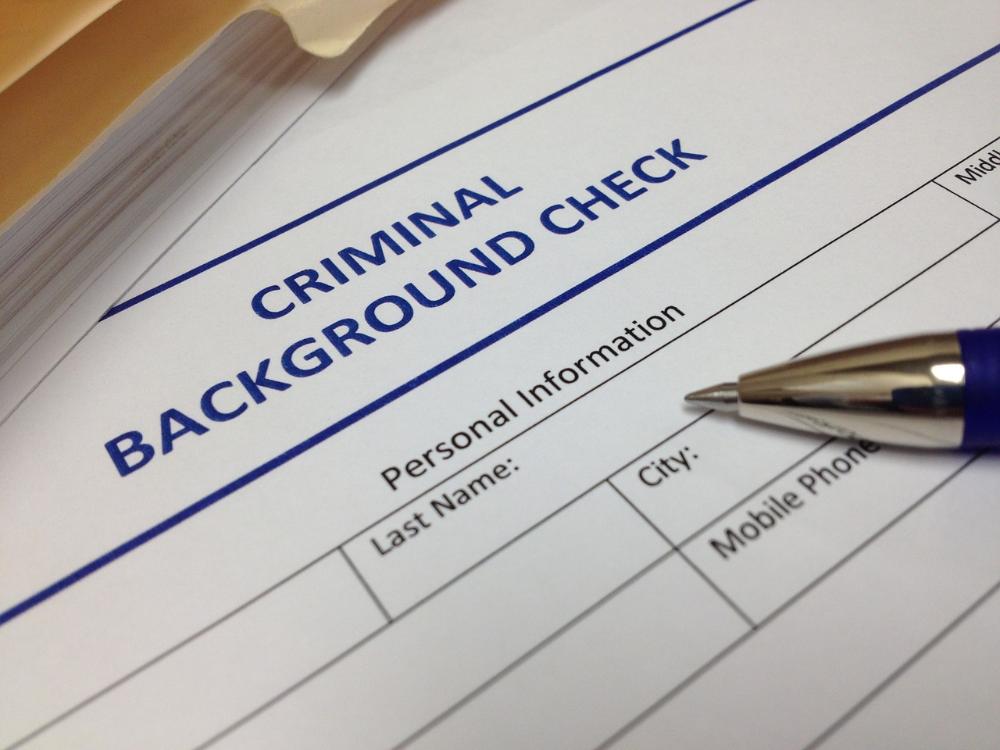
Some homeowners will demand for their own peace of mind that housesitters have criminal record checks, although having one is still a very optional thing in the housesitting world and you can still be successful without one.
With that said, it only costs a small amount of money to get one and it will help to put you ahead of the competition.
Housesitmatch and Trusted Housesitters both offer a background check service, but most other housesitting platforms don’t provide any such facility, advising their members to get this done through the appropriate authority in their native country instead.
Here are some websites where you can either apply for a background check online directly or get further information on where to apply.
Australia – Apply online, $42 AUD)
U.K – Apply online, £45 for 10 working days, £80 for 2 day premium service
U.S. – Info on how to apply
Canada – Info on how to apply
Germany - Info on how to apply, fee is €13
Sweden – Info on how to apply + downloadable form, fee is SEK180 plus postage fees
France –Apply online
Spain – Start here
If you can't get a police check don't worry about it too much. What's more important when starting out is that you have a few good references. With no references from the get-go you could really struggle to land housesits.
But how do you get references when you've never housesat before? Well, fortunately it's not as difficult a problem to solve as you might imagine.
You can obtain character references from previous employers, colleagues, tutors, professors, friends and family members.
These references are a good start but you'll also need some references that confirm you are great with animals and can take care of people's homes.
If you've housesat for friends, family, neighbours or anybody else in the past, then you have your first reference that is specific to housesitting. Even if you've just performed some of the duties involved in housesitting you can still ask for a reference.
You can also get employment preferences from previous employers. References for jobs where you worked with animals, gardens or managed properties will be particularly relevant.
If you have your own pets, you could get a reference from your family vet vouching for your competency in caring for animals.
Landlords are also a good source of references. They can mention how you respected their property and were able to solve simple DIY problems by yourself.
If you’ve been travelling a bit you can also request references or use ones that you’ve already obtained from previous Couchsurfing and Airbnb hosts.
You might also consider housesitting locally for friends and family for a while in order to built up your references, so that you have a higher chance of landing the more competitive international housesitting gigs.
Provide links to your social media profiles and website
If you have your own website/blog or accounts with Instagram, Facebook, Pinterest, Twitter etc. you should link to these in your profile to improve your credibility and give the homeowner further insight into the kind of person that you are.
Some housesitters create their own housesitting website to further boost their credibility, but you can still be successful in this endeavour without having your own platform.

Although homeowners might occasionally reach out to you first on housesitting platforms, such occurrences are outside your control to a large degree, and you’ll have a much higher chance of securing your first assignment by applying directly to some ads.
You'll have to apply to more ads when you're first starting out, but as you build your reputation over time you can gradually become choosier and will start to land assignments with less effort.
Before applying for an assignment, carefully read through all the details and make sure that the country issues a visa that will allow you to legally stay there for the full duration of the housesit.
It’s essential that you apply ASAP whenever a desirable assignment crops up, as it’s normally a case of “the early bird catches the worm”, especially with the more desirable gigs.
If you’re not one of the first 5-10 applicants it's very possible that your message will be ignored, and once a homeowner has begun to correspond with somebody else, it’s probably game over for you.
That’s why you should always turn on e-mail alerts so that you get notified whenever new assignments are posted, although of course, you may be thinking, don’t other members also have that same advantage?
The answer is that yes, they do, so in order to be the very first to the table, you can try to apply for assignments even before the e-mail alerts are sent out.
To do this, just keep refreshing the listings page and when a new assignment appears you can apply before anyone else gets a chance to. Not many people will be using this trick.
When you reach out to a homeowner it’s crucially important to personalize your message according to their specific requirements and circumstances.
A personalized (vs generic template) message signifies your genuine interest in the assignment because it requires more investment on your part to craft such a message.
You have to read through the homeowner's profile, learn something about them and write a unique message exclusively for them that can't be sent to anyone else.
Homeowner's know that a person who's highly invested is likely to be a great candidate for the job.
To write a personalized message, always address the owner by their name and be sure to mention the names of the pets if the homeowner has divulged them.
Try to also include any other details in your message that you could only know if you had carefully read the homeowner's profile.
Don't mention any skills or experience you have if they aren't relevant to the specific assignment in question, as this would signify that you haven't even read the owner's profile.
If for example the owner mentions in their profile that they don’t need you to do any gardening during your stay, don't talk about how much experience you have mowing lawns.
Talk about why you want to housesit specifically for this homeowner and not for somebody else.
Are you choosing this housesit because you have experience with the particular breed of dog that they own? Are you applying because the property is in the mountains and hiking is one of your favourite pastimes?
Making the owner feel a little bit special, as if they’ve been “selected” by you from thousands of other options will dramatically improve your chances of getting a positive response.
It’s all about showing the homeowner that you are the perfect fit, the exact match for their specific situation.
Many other housesitters will just be playing the numbers game, bombarding dozens of homeowners with the same copy & paste template, so you will be streets ahead of the competition by customizing your message.
The last point I want to make is not to make your application too long, as the homeowner can always visit your profile if they want to know more about you.

If there’s a most important step in this whole process, it just might be this one. Screw this part up and you might end up in a situation that you hate or aren’t suited for.
Once you begin to correspond with a homeowner there’s a good chance you’ll land the job, but before committing to anything, you need to further qualify the homeowner (and let them qualify you) to gain a very clear picture of what’s involved before committing to anything.
Don’t be afraid to request more photos of the property and pets if there weren’t very many provided in the homeowner’s ad.
Ask for photos of the bathrooms, kitchen, living room, porch, bedrooms and the front and back gardens. Additional photos may reveal that a house is filled with clutter or is not kept clean.
It also behooves you to find out the exact location of the property rather than being content to only have a vague idea of what region or city it’s in.
Just because the housesit in a city that you’ve been eager to visit doesn’t mean that it’ll be anywhere near the attractions that you’re interested in seeing.
If the property is somewhere remote, ask the homeowner if they have a vehicle and if you will have the use of it during your stay. You don’t want to be left stranded.
If you plan to work online during your stay and a fast Wi-Fi connection is essential for you, don’t hesitate to ask for specific details on the broadband provider and what kind of package the homeowner has.
This is crucial, because some cheap home Wi-Fi plans can have a ridiculously small usage limit like 1 GB per month, and the Internet speed slows to a crawl once you’ve used up the data.
If pets are involved, ask the homeowner lots of questions about them. What kinds of pets do they own? How many of each kind? Do the pets have any quirks or unusual requirements?
Bear in mind that some pets can’t be left alone in the home for too long, which could mean that your freedom to spend time outdoors will be curtailed during your stay.
Some animals can also be high maintenance due to having medical conditions such as diabetes, which might require you to administer injections on a daily basis.
Some pets might also be aggressive, untrained or have behavioural problems. If you’re a petite, timid girl and the homeowner needs you to manage his three fully-grown Alsatian dogs, you might want to re-consider if you’re up to the task.
You should generally try to ask more questions about the pets than anything else, as this will show that you’re genuinely interested in animals, which is exactly what most homeowners are looking for.
You should also ask a few questions about the other duties that are expected of you during your sit.
What is the square footage of the property and how many floors need to be maintained? How many plants need to be watered and how frequently? How big is the lawn and how often does the owner want it mowed? Will you have to handle a high volume of postal mail and phone calls or just a small amount? Do any of the tasks involved difficult manual labour?
If the homeowner is asking more of you than you’re prepared to give, then it’s better to decline an offer rather than end up resenting the owner later.

After a bit of back and forth dialogue, the homeowner may want to have a Skype video call interview* with you in order to get to know you a bit better as a person.
If you can nail the video call interview, you should land the job, but a lot of people screw up here by trying to oversell themselves.
The purpose of the interview is really just for both of you to get to know each other a bit better on a personal level, so it’s best to just act natural and not try too hard to impress.
You can also ask the homeowner to give you a tour of the property and to show you the pets during the video call, so that you can be sure it’s a place where you’d be happy to live for a while.
Some homeowners might also want to go over a formal written agreement with you during the video call, which might be something they’ve drafted themselves or a document they've downloaded from the housesitting platform that they met you on.
However, if you’ll get a chance to meet the homeowner before the housesit commences it’s more likely that they’ll go through the agreement with you in person when you arrive at the property.
In most cases people don’t even use formal agreements and instead just trust that the other party will adhere to anything that was agreed upon verbally.
During the video call (and indeed the rest of the application process) you need to be carefully evaluating the character of the owner, rather than thinking of yourself as the guilty party and allowing the homeowner to be the sole arbiter.
Remember that it’s not always the housesitter that lets down the homeowner – sometimes it’s precisely the opposite.
It’s important to possess a healthy skepticism and to ask yourself if perhaps there is a very good reason why the homeowner is abandoning their property at this particular time of the year.
Is there something the homeowner is trying to escape from that you will have to contend with, like sweltering heat, frigid temperatures, monsoon deluges, insect plagues, water shortages or unpleasant seasonal duties?
Or might the homeowner just be trying to exploit the free labour offered by housesitters without being willing to adequately reciprocate?
By adopting a skeptical attitude you will ask the homeowner the right questions and you'll be more vigilant for any red flags that could potentially save you from accepting a nightmare assignment.
Here are some of those warning signs that may herald a bad housesit:
The reviews and feedback on the homeowner’s profile are overwhelmingly negative
The house looks to be dirty, untidy or full of clutter in the photos or during the video call
The pets appear to be diseased, unclean, half-starved or generally neglected in the photos or during the video call
The homeowner appears to be inebriated or is drinking alcohol liberally during the video call
There are lots of spelling and grammar mistakes in messages (although this could also just be indicative of a non-native English speaker or dyslexic person)
The homeowner keeps complaining about previous housesitters, accusing them of various misdeeds like stealing, damaging things, running up the utility bills, abandoning the sit mid-way through (if nobody completed a housesit, it says a lot) etc.
The homeowner frequently gets angry for trivial reasons and generally comes across as irrational or eccentric during communications
The homeowner seems reluctant to provide the information you request, only providing vague answers and no concrete details like the exact location and square footage of the property, the precise distance from the nearest village, the number of pets they keep etc.
The homeowner is unwilling to give you a tour of their property during the video call
It’s especially important to be vigilant for red flags if you’re applying for a housesitting job that’s not within a stone’s throw of where you live.
At least if the assignment is nearby you can pay the owner a visit and check that everything is in order before you commit to anything.
But if you’re spending a lot of money on flights, visas, ground transportation etc. and investing a lot of time to travel to a housesitting assignment in a foreign country, you had better be extra sure that you’re not dealing with a scammer.
Sometimes there are no obvious red flags but you still get a gut feeling that something is wrong. Maybe it’s something your subconscious has picked up on but that hasn’t entered your conscious awareness.
If you have a really bad feeling about a housesit but you can’t explain why, it’s probably best to trust to your instincts and decline the job.
But if all goes well during the interview and you get hired on the spot or at some later stage, take a look at Step 6 below for what to do next.
*If the owner lives locally you may wish to skip the video call and meet each other in person before finalizing everything.
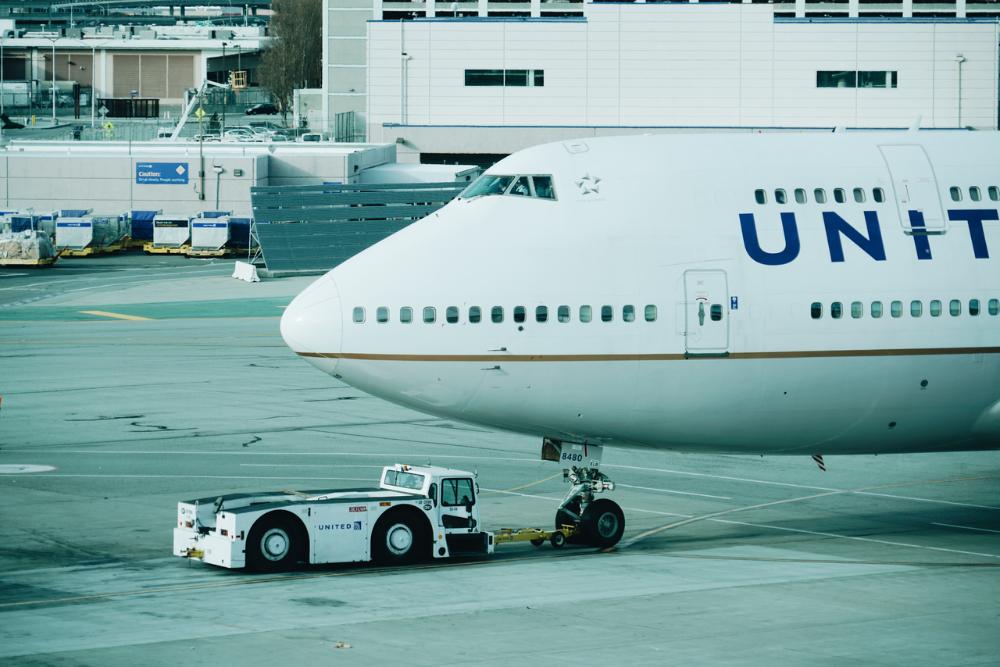
After a homeowner has confirmed that you’re hired, it’s important that you keep in touch via e-mail or another communication channel to reassure the owner that you’re still committed.
Many owners have been stood up in the past by housesitters who have cancelled only a few days or weeks before the scheduled date of arrival, leaving the homeowner stuck with a non-refundable plane ticket and having to scramble to make alternative arrangements at the last minute.
It’s common practice to book your plane ticket fairly promptly after landing the job and to forward the booking confirmation to the homeowner’s e-mail address so that they can stop fretting about whether you’re coming or not.
However, by doing this there’s the risk that you could be stood up if the homeowner changes their plans and cancels, so if you want to play it a bit safer, you might want to wait for the homeowner to send confirmation of their flight before booking yours.
Before you jump on the plane you may also need to apply for a visa at the relevant embassy.
Depending on the duration of the housesit, you may only need to apply for a tourist visa, but if it’s a long-term housesit you might need to apply for some other type of visa.
Always try to get a visa that leaves room for a change in plans, just in case the homeowner is delayed on their departure or return.
Another thing you might want to apply for before hopping on the plane is an international driver’s permit, especially if you're going to need a vehicle to get to the local grocery store, pick up household supplies or run errands for the homeowner.
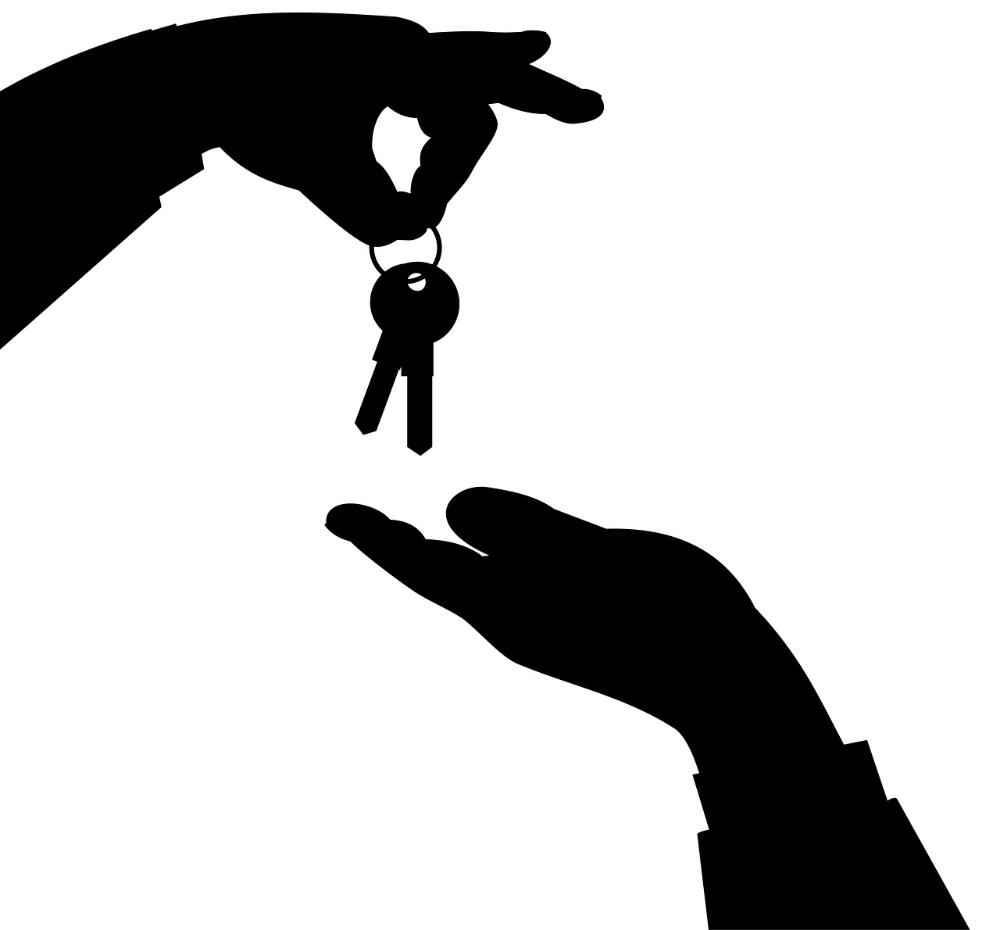
When you arrive at the airport in your destination, don’t mention anything about housesitting on the arrival card, as the immigration officer could construe it that you’re coming to the country to work!
In the “purpose of visit” section of the arrival card just tick the box that says “tourism”.
If you’re asked to provide an address, just write the address of any well-known hotel, guesthouse or hostel, but do not put down the residential address of your housesit, as this could trigger alarm bells if you don’t have a social-cultural visa.
Usually the homeowner will ask you to arrive a couple of days before they leave for orientation purposes.
This gives the owner sufficient time to show you the ropes, get to know you a little better, and have you fully settle into your new home before handing over the keys to the castle.
During the orientation period you should interact with the pets as much as possible so that the owner is reassured that you’re interested in them and so that the animals are already used to you by the time the owner leaves.
Before the homeowner departs both of you should be clear on what each expects of the other and all essential information should be transmitted between both parties.
You should discuss issues like:
Communication – How often does the homeowner want you to send them updates and by what means? Are there certain dates when the owner doesn’t want to hear of any problems or bad news?
Housekeeping & gardening chores– What duties are expected of you and how often? How to operate the vacuum cleaner? What about the lawnmower? Does anything need to be composted? What should be put in the bird feeders? Where are the cleaning products kept? What’s the procedure for maintaining the swimming pool?
Pets – What food should they be fed and how many times per day? When should the dog be taken for a walk? Should the dog always be kept on a leash? How long can the pets be left alone for? (Dogs are needier than cats in this regard) Do the pets need to take any medication? If so, what medicine and how frequently? How often should the pets be bathed and groomed? How often does the cat litter need to be changed? What to do if a pet goes missing, gets seriously injured or god forbid, unexpectedly dies?
Guests – Are you allowed to invite your own guests over to the house? If so, is there a limit to how many? Can they stay overnight?
Staff - Do any staff ever visit the property to carry out cleaning, gardening or other maintenance work? When do they normally come? Do they expect to be paid their wages in cash?
Visitors - Who might call to the house in the homeowners absence and how to deal with such people? Does the owner have any grown-up children that might pay a visit and want to stay for a few nights?
Freedom of movement – What’s the maximum length of time you can be gone from the property during the day? Are you required to sleep there every single night?
Expenses – Who pays for what? Are all the utility bills fully covered by the homeowner? What about groceries? Do you have to pay for your own gas (petrol) when driving the owner’s car?
Driving – Are you insured when driving the owner’s car? Are there any local rules and regulations you should be aware of?
Security deposit - Does the homeowner require you to pay a refundable security deposit? If so, this should have been mentioned in advance of your arrival.
Mail – Where to pick it up and store it? Does it need to be forwarded or just kept in a safe place until the owner gets home?
Phone – Should you take messages for the owner if anyone calls? How to listen to the answering machine?
Garbage collection - How does it work exactly and on what day of the week is the trash collected? Is there a kerbside recycling service? What can and can't be recycled through it? Where are the local recycling facilities located and what can be recycled at them?
Alarm codes – You should memorize the code and practice arming/disarming the alarm before the homeowner leaves.
WiFi - What’s the password and network name? How to contact the provider if there are any technical problems?
CCTV cameras – Are there any security cameras on the property and have their whereabouts been disclosed to you?
Keys – Which keys are for which doors/windows of the property? Is there a spare key hidden somewhere or left with one of the neighbours?
Fire extinguishers – Where are they located in the house and how to use them?
Garage – How to operate the remote-controlled garage door?
Gas, water and electricity shut-offs – Where are they located and how to shut off the utilities in an emergency?
Appliances - How to use the heating and air-conditioning systems? How to work the washing machine, dryer and any other potentially quirky appliances in the house?
Restricted areas and items – Are any parts of the property out of bounds? Are there certain objects in the house that you aren’t allowed to touch or use?
Vaccination records and paperwork – It’s essential that the homeowner provides you with these. If you ever need to abandon a sit part way through and the owner wants you to transfer the pets to a boarding facility, the animals may be denied access if you can’t produce the vaccination records.
Contact details – What are the contact details for emergency services, neighbours, friends of the homeowner, local vets, pest control, plumbers, electricians, cable technicians, repairmen and other important local service providers?
Emergency procedures - It’s important to run over what to do in the event of a hurricane, earthquake, flood, volcanic eruption, bushfire or other natural disaster that the region is prone to.
It’s a good idea to write all this information down in case you forget some things, although some homeowners might provide an instruction manual that covers everything.
The homeowner might also have both of you go over and sign a written agreement that they may have downloaded from the housesitting website they met you through.
When it’s time for the homeowner to leave, you might offer to drop them to the airport, either in your own vehicle or theirs.
Many owners appreciate this hugely because it saves them on airport parking fees, which can be very costly.
In some cases you won’t get a chance to meet the homeowner in person at all, so all the nitty-gritty details will have to be discussed in advance of your arrival through the most suitable means of communication.
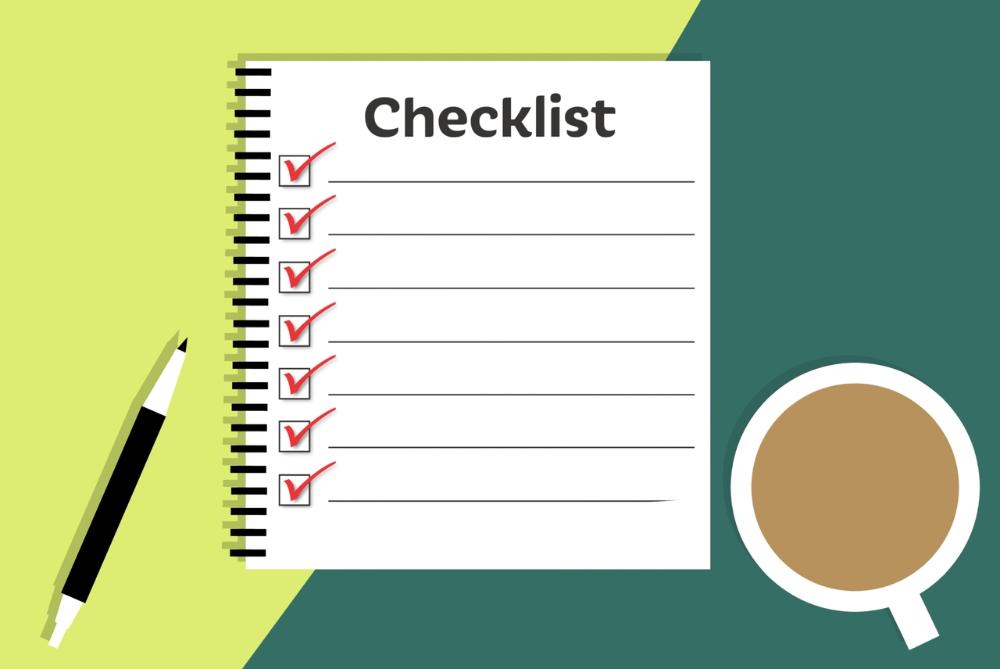
If you’re a homeowner there are a few things you need to do before your housesitter arrives at your property, or at least before you say your final goodbyes.
- Make space in your home for the housesitter. Make sure they have space in the closet to hang their clothes and somewhere to store their bags and personal belongings. Make sure there's enough space in the fridge and cupboards for them to store their own grocery items.
- Make sure to put any breakables or fragile items out of sight and preferably out of reach too.
- Lock away any valuables, precious jewellery, sensitive documents or private items in a home safe like the Amazon Basics Security Safe.
- Make an inventory of the valuable items in your home and keep the document in a secure place, such as with a relative, solicitor or on a computer
- Define any parts of the home that are off-limits and lock doors to out- of-bounds areas if necessary.
- Create an information pack for your housesitter with sheets of A4 paper kept inside a stiff plastic sleeve. It should provide all the necessary instructions that a person will need to take great care of your home and pets. You might also include personal contact info, emergency contact details, your visitors policy, rules & regulations for the property and your house sitting agreement here. Other optional inclusions are a local transport map, a tourist map, info on local attractions and info on local driving regulations.
- Make sure the house is clean, tidy and presentable when your housesitter arrives. Have the beds made with clean sheets and hang clean towels in the bathrooms.
- Ensure that all the appliances and utilities are in working order for your housesitter and get any essential repairs done before you leave.
- Make sure that you have the house well stocked with all the necessary tools, supplies and equipment that your housesitter will need for looking after the pets, house, pool, garden, vehicles and so on.
- Have the fridge and cupboards stocked with a few perishable food items so that your housesitters don’t have to do a huge grocery shopping (and abandon the pets) the moment you leave.
- You might need to cut a new key(s) for your housesitter if you don’t have spares already. They may need keys for the front door, back door, windows, outdoor tool shed and so on. You may wish to leave a spare key(s) with a neighbour or trusted friend, or in a secret hiding place.
- Inform your trusted neighbours, service providers (maids, gardeners etc.) and insurance company that you’re going away and that a housesitter is moving in so that nobody suspects a burglar or squatter is trying to break into your home.
- You need to decide if you're going suspend services from your cleaner, gardener, lawn mower etc. during your absence. If you decide to keep these services running, then it needs to be agreed upon who will pay for them.
- You might want to set up a redirection order for your postal mail. However, not having to do this is one of the major benefits of hiring a housesitter, so you might want to just have your sitter handle that.
- You might want to cancel any subscriptions to magazines, newspapers, DVD rentals or pay-per-view satellite T.V before you leave.
- You may also need to cancel any regular home delivery services that you have for items like milk and groceries.
- Decide if you're going to cook a welcome meal for your housesitters. Treating them well will make them more likely to treat your home and pets properly.

After the homeowner leaves it’s recommended that you conform to the pets’ prior routines for the first few days rather than forcing them to adjust to yours.
So if, for example, the homeowner was getting up at 8 a.m to walk the dog, then you should do the same at the beginning.
It’s easier for the pets to acclimatize to you if they don’t have their old routines disrupted at the same time.
Pets may also need extra care and attention during these first few days without their master. This is especially true for dogs, which can often suffer from separation anxiety.
Some housesitters won’t leave the house at all for the first few days so that the pets don’t get too distressed. Some homeowners have the house well stocked with food when housesitters arrive for this very reason.
After a while you can gradually switch back to your own routine and reduce the amount of time and attention you devote to the pets.
If at the beginning there are some aspects of the house that you aren’t happy with, there’s no harm in making some small adjustments.
For example, if you want to reposition furniture or other objects you can do so, but just remember to take photos of the original layout because you might forget it after a few weeks living with the new arrangement.
Anything breakable or fragile that you're afraid you might break or damage should be moved somewhere safe and out of the way, but if you think that moving an item could also be dicey, it's probably best to just leave it in situ!
When tidying the place be careful about throwing papers and other things that seem insignificant in the trash, as they may be of value to homeowner.
It’s unlikely that your new home will already be equipped with everything you require to live life according to your own personal standards, but you can easily remedy that by going out and purchasing any appliances or other items that you feel will make your stay easier or more comfortable.
However, you shouldn’t have to invest too much of your own money in making a home livable and if you do, it means that you failed to do your homework in the first place when choosing the housesit.
Bear in mind also that any large, non-portable items that you buy during the housesit will have to be sold before the homeowner returns, and if you’re unable to sell them in time, they’ll probably become a gift to the homeowner.
If a homeowner has agreed to pay for all the utility bills it’s important not to take undue advantage of this over the course of your stay - housesitters have abused the generosity of homeowners in the past by running up astronomical utility bills.
If the homeowner has left any non-perishable food items behind in the fridge or cupboards, don't automatically assume that you can just help yourself, just in case it's something they didn't want you to touch. Perishables are normally okay to eat because they'll just go bad anyway.
Whenever you need to leave the property, always lock all doors and windows so that you can't be blamed in the unlikely event of a break-in. Even if the homeowner tells you its not necessary to lock up, always do so anyway.
If any challenging problems arise during the housesit, always try to solve them yourself before troubling the homeowner (who's probably trying to enjoy their vacation) or a neighbour.
If something bad happens during the assignment that could potentially be blamed on you, it’s generally best to be completely upfront about it with the homeowner.
Never try to sweep a problem under the rug (unless you accidentally killed one of the pets in a fit of anger).
If you break an expensive china plate belonging to the owner by accident, tell the homeowner that it was your fault and apologize. Maybe you’ll be asked to replace it, maybe you won’t.
If you scratch the owner’s car while driving it, don’t lie and say that somebody must have scratched it with a nail while it was parked outside the grocery store.
If you forget to water a plant and it dies, don’t try to do anything silly like discard the pot that the plant was in and pretend it never existed, as doing that could lead to more problems down the line.
By owning up to your mistakes whenever you make them you’ll come across as more trustworthy and sincere, and it’ll usually work in your favour, not against it.
With that said, it’s also important to respect a homeowner’s wishes if they’ve asked you not to inform them about any problems or bad news.
Even if everything is going swimmingly, it's a good idea to update the homeowner every now and again, just in case they're starting worry about the situation back home.
If for any reason you have to abandon a housesit part way through, notify the homeowner immediately and try not to leave before they’ve had time to figure out an alternative solution.
You might also consider compensating the owner financially if they will be at an ecomonic loss due to your untimely departure.

If the homeowner is flying home from a foreign country and you have a set of wheels, it would be a nice gesture to offer to collect them from the airport.
If you originally dropped them to the airport when they were leaving they may even be depending on you to pick them up.
The owner will be expecting to return to a clean and tidy home that’s in the same or better condition than what it was in when they left it, so make sure that everything is spick and span on the day.
Don’t forget to re-arrange any furniture or other items that you moved from their original positions either.
Upon reaching the house the owner will probably be tired and hungry, so at the very minimum you should have the kitchen stocked with the basics like coffee, tea, milk, sugar, bread, butter and so on.
It would be a nice gesture to prepare a nice meal to welcome the owner home or make them some freshly baked goodies. Consider what time they're going to arrive at and what they'll need when they get back.
A thank you note and a gift like a bottle of wine, a bouquet of flowers or something personalized wouldn’t go astray either, just to show your appreciation. The homeowner might also have a gift for you from their vacation.
If it was a long-term housesit you’ll want to provide an end-of-assignment report detailing everything important about the housesit including:
- all the expenses you incurred for repairs, maintenance, pet care etc.
- any incidents involving the pets, house, vehicle, garden, neighbours etc.
- any important items belonging to the homeowner that got broken, damaged or went missing
Other than that you’ll just need to hand the owner back the keys, say your goodbyes to the pets and owner, and try not to shed a tear.
The homeowner might offer to drop you to the airport, bus station, train station or arrange transportation for you. And then you’ll already be on your way to your next big adventure.
After you leave a housesit you should soon follow up with the homeowner and ask them if they were happy with how everything went.
At this point you can also ask them to leave you a testimonial or a reference, and you can do the same for them too. Some homeowners might just tell you that you can refer anyone to them for a reference if needs be.
If it was an experience you really enjoyed or you really got on well with the homeowner you might want to keep in touch afterwards. Doing so could help you to get repeat business and even if not, it’s always good to maintain friendships.
Housesitting is a fantastic way to travel the world, save money, pay off debt, connect deeply with a place, live like royalty, create lifelong friendships and interact with amazing animals.
It can be a full-time alternate lifestyle or just something you do every now and again to add a bit of spice to your life or shake up your travels a bit.
It’s accessible to the majority of people because almost everybody has lived in a home and has some experience looking after pet animals.
As with anything in life, there are downsides to the job but most people who housesit find that these are far outweighed by the benefits.
Landing your first housesitting gig is as easy as signing up to a housesitting website, creating your sitter profile and starting to apply for assignments.
Why not giving housesitting a try to see if it’s for you? Whether it works out for you or not, I promise you that you’ll be glad you gave it a shot.
If you like this article or found it useful, please share it with other travellers. Have you ever tried housesitting before? Do you have any tips for success? Leave us a comment below and we'll get back to you as soon as we can!
You may also like:
JOIN OUR LIST
SUPPORT US
FOLLOW US
ABOUT US
Our names are Eoghan and Jili and we hail from Ireland and India respectively.
We are two ardent shoestring budget adventure travellers and have been travelling throughout Asia continuously for the past few years.
Having accrued such a wealth of stories and knowledge from our extraordinary and transformative journey, our mission is now to share everything we've experienced and all of the lessons we've learned with our readers.
Do make sure to subscribe above in order to receive our free e-mail updates and exclusive travel tips & hints. If you would like to learn more about our story, philosophy and mission, please visit our about page.
Never stop travelling!
FOLLOW US ON FACEBOOK
FOLLOW US ON PINTEREST
-lw-scaled.png.png)
.png)



